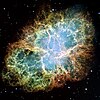Portal:Physical Sciences


Welcome to the Physical Sciences Portal! This page connects browsers to the learning materials that have been developed by the various Wikiversity Physical Sciences content development projects. This portal features exciting examples of Physical Sciences learning resources.
The content development projects are the schools, departments and divisions linked to from this page. Wikiversity participants who are interested in the Physical Sciences are invited to create and develop learning projects and learning resources and help organize access to them by developing this portal.
View a list of learning projects for Physical Sciences: learning projects for Physical Sciences.

The Observational astronomy learning project has activities for participants that guide them through the same process that an astronomer uses to analyze data. Participants in the Extrasolar planet project explore telescope data to find planets orbiting distant stars. The goal is to create a learning group where participants can compare notes and document the search process and to create an extended learning activity about exoplanets. No prior experience is needed; participants get step by step instructions on how to get started.

The Wikiversity Institute of Particle Physics is a content development project where participants create and organize learning resources related to physics. Resources under development include study guides for: Statistical mechanics, Relativity, Mathematical Methods in Physics, Quantum mechanics I, Classical mechanics, Chaos theory.
Participants in the Theory of Everything Project develop research projects involving public databases for particle physics experiments.

The Euler-Lagrange equation of classical mechanics was discovered during attempts to find a curve for which the time taken by a frictionless particle sliding down it under uniform gravity to its lowest point is independent of its initial starting point.
Browse learning resources in these categories:
- Astronomy - Chemistry - Geology - Hydrology - Marine science - Mathematics - Meteorology - Physics - Earth Sciences
Content development projects exist on pages in "School:" or "Topic:" namespaces.
Other Wikiversity science-related portals: Asteroid Surveys - Engineering and Technology - Life Sciences - Mathematics - Social Sciences - General Science Portal

"This is not your mother's radio telescope." - Jill Tarter speaking about the Allen Telescope Array. See Astronomy Project.
"We must not forget that when radium was discovered no one knew that it would prove useful in hospitals. And this is a proof that scientific work must not be considered from the point of view of the direct usefulness of it". - Marie Curie
- The Wikiversity page for Acid-base chemistry introduces the fundamentals and links to related resources at Wikibooks and other websites, including videos.
- Amateur Astronomy - Astronomy Project - Backyard Astronomy - Galactic evolution - Introduction to Astronomy - Introduction to the Planets - Observational astronomy - Stellar evolution - The visible sky - Radioactivity - Bonding and chemical structure - Fundamentals of chemistry - Introduction to Geological Engineering - Aquaculture Project - Aviation Weather - Dark matter - Electrons and Electric Fields - Energy - Particle Physics - Radioactivity Basics - Vibrating String
- Foundations of Science
Geology.
"Geology may work in favor of energy producers" by David Elbert.
Sandstone domes in the remnants of the North American Midcontinent Rift can be used to store energy.
Active participants
- Since 14 October 2011 with Astronomy --Marshallsumter (discuss • contribs) 00:08, 10 May 2018 (UTC)!
Inactive participants
- Up to 1 September 2006 Rayc.
- Up to 20 August 2006 HappyCamper.
- Up to 4 February 2008 JWSchmidt.
- Up to 1 September 2006 Jimbobalina2005.
- Up to 8 November 2006 Astrophysicist.
- Up to 22 November 2006 Msmithma.
- Up to 23 November 2006 Hillgentleman.
- Up to 4 February 2007 Remi0o.
- Up to 22 March 2008 McCormack.
- Up to 12 June 2012 Bci21.
Things you can do
|
Content by Level Content by Subject |

